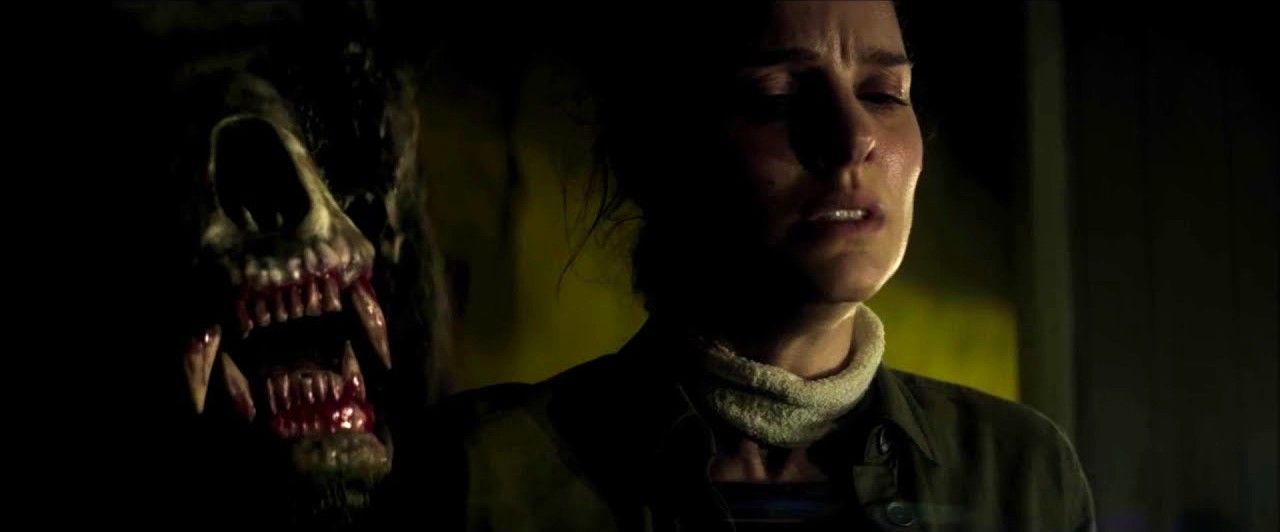
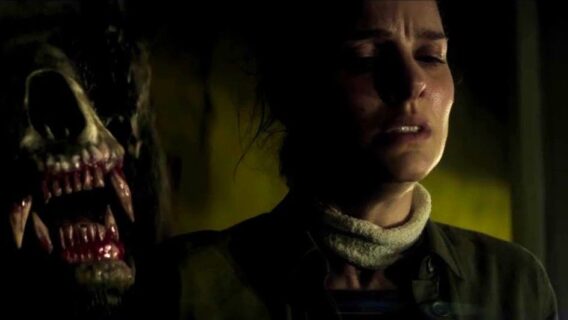
It begins with the creaking of a door. It’s a sound we all know well, and one we associate with impending horror. The opening of a door precedes danger, giving way to a glimpse of the unknown. But then, there is something different. The shuffling of heavy steps, mixed with panting and then finally, moaning. The face of an animal is revealed, human teeth clashing with fangs, and what looks like a bear descends from the darkness. When it opens its mouth, what we expect is a growl, or perhaps a roar. Instead, what we hear sounds a lot like myself, or maybe even you.
In Alex Garland’s 2018 film Annihilation, the writer/director wants us to be unsettled by the fleetingness of our humanity. The film begins with Lena (Natalie Portman) finding out her husband who she assumed was killed in action in an out-of-town mission, is not dead after all. When Kane (Oscar Isaac) shows up as she finally gets ready to let go of her old life, Lena herself gets swept up in whatever mess Kane got himself into. What proceeds is Lena going on the same mission, into a hazardous environment the military is calling “the Shimmer.” In the Shimmer, biology as well as human and animal cells begin to change, refracting with the light and air that came to earth after a meteor strike.
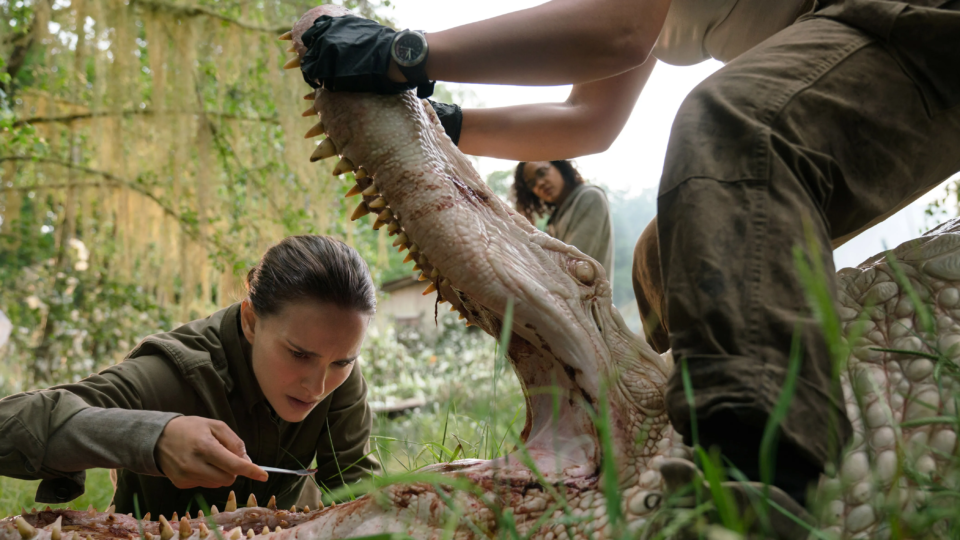
The film itself is a meditation on grief and self-destruction. But what remains its most successful aspect is the horror factor. Annihilation was deemed the “most thoughtful science fiction movie since Arrival” upon its release, and while this is true the film’s horror aspects remain unwavering years later. One of the most significant scenes in the film, aside from the kaleidoscopic finale, is a pivotal moment in the middle of the story involving a terrifying creature, which sparks the flames of the film’s essential themes. Early on, one of the team members named Sheppard is attacked in the night and killed by a bear. After finding her body, the team moves on to an abandoned neighborhood close to the swampland.
The team decides to camp out at one of these houses, after realizing that the Shimmer is refracting DNA from humans, animals, and plants with the Shimmer’s own alien properties. When they enter, the camera holds on Lena’s figure as she glances at picture frames left behind by previous inhabitants. The camera holds for a few seconds, giving you enough time to realize that yes, this is a direct repeat of the shot in which Kane first enters their house at the film’s beginning. Somehow, the Shimmer has seen Lena’s memories, and therefore replicated the house she once shared with her husband.
Their relationship was strained, and it is presumed that Kane was aware of his wife’s infidelity. The house they shared becomes a prison for both of them, which is why the most violent scene in the film is able to unfold in its duplicate. Once Anya (Gina Rodriguez) has grown paranoid enough to tie up her crew, she questions them if they knew Lena was married to a previous expedition member. When she moves towards Lena to assault her, there is a human scream heard from outside. It’s a scream that sounds exactly like Sheppard.
Although the audience knows that Sheppard is dead, Anya believes she must be alive because she herself did not see her friend’s deceased body. Thus, she goes outside to investigate, and hopefully save her friend in the process. It is revealed in the most horrific fashion that the sound the team was hearing was actually the bear that attacked Sheppard. When it opens its mouth, Sheppard’s screams radiate through the air. It becomes apparent that when the bear ripped out Sheppard’s throat, it ingested her cells and genetic makeup, causing her vocal cords to merge with that of the bear. Each time the creature opens its mouth, its growls mix with Sheppard’s dying cries for help.
The bear was created with prosthetics, molding fragments of human and animal anatomy to truly display the horrors of the Shimmer’s refraction. Human eyeballs merge with matted fur, bringing forth a haunting display of transformation, and human teeth jut out from the side of the creature’s head, while bear fangs reside down below. The creature’s movements are controlled, though the sound that emits from it is not. When the bear opens its mouth, a human scream is present alongside an animalistic growl.
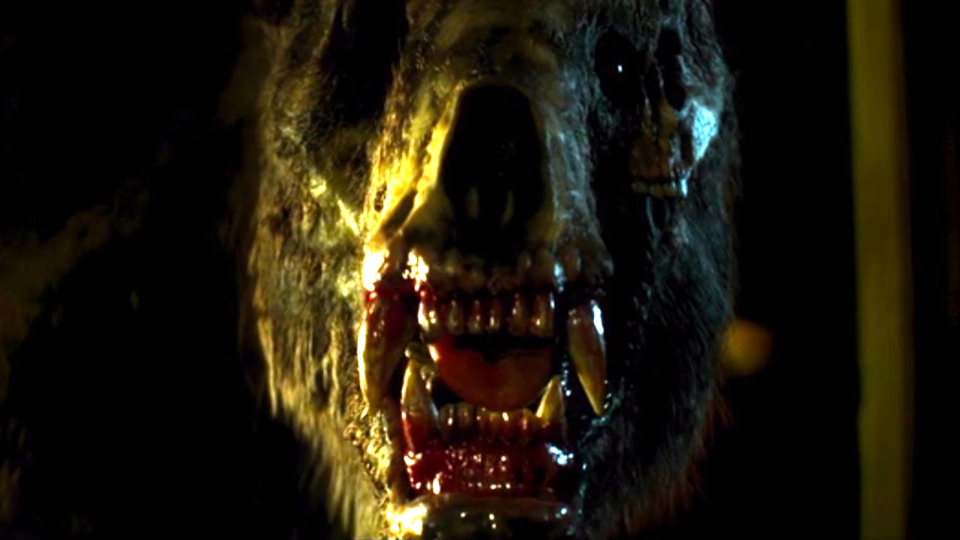
The bear scene’s reputation precedesAnnihilation as a film, with a hit tweet about the “annihilation bear” going viral every few months. The longevity of its scare factor is embedded in the creature’s design, the film’s sound work, and the overall feeling of unease that comes with seeing something you’re familiar with, but that thing is now changed. The bear kills Anya in one of the most vicious onscreen deaths seen in a science fiction film. It rips her open from nose to jaw, further proving the idea that in recreating Lena and Kane’s house visually, the Shimmer recreated the heightened emotions the couple felt in the last few months of their marriage.
It’s a testament to the craft team that worked onAnnihilationthat a scene like this can remain so ingrained in film culture. The film was deemed a flop at the box office. But that didn’t stop horror and sci-fi fans alike from adding this to their list of the best films of the 2010s. Although the film didn’t get the appreciation it deserves during its theatrical run, Annihilation has lived on through one of the most horrific sequences in cinematic history.
This fantastic scene will not be forgotten, even as the film celebrates its five-year anniversary this month. The horror that comes from this scene isn’t just from the sonic waves produced by the scene-stealing bear, but what this represents within the scope of the whole film. The bear exists as a sickly doppelganger of Sheppard’a own self. While not looking like her in the slightest, parts of her continue to live on through the bear. By killing her, it consumed her, forever trapping her dying screams within its own vocal mechanism.
Garland wants his viewers to look into themselves, and question what happens to us once we’ve destroyed ourselves beyond recognition. What do we become once we’ve peeled away every “human” part of ourselves, and what does it look like when we have completely transformed? It may look like the bear in Annihilation, transformed and bearing the scars of self-destruction, or it may look like something different. Perhaps it looks like one of the film’s final images: a striking concoction of light, bursting through the air as we shed the final human parts of ourselves, forever changed.





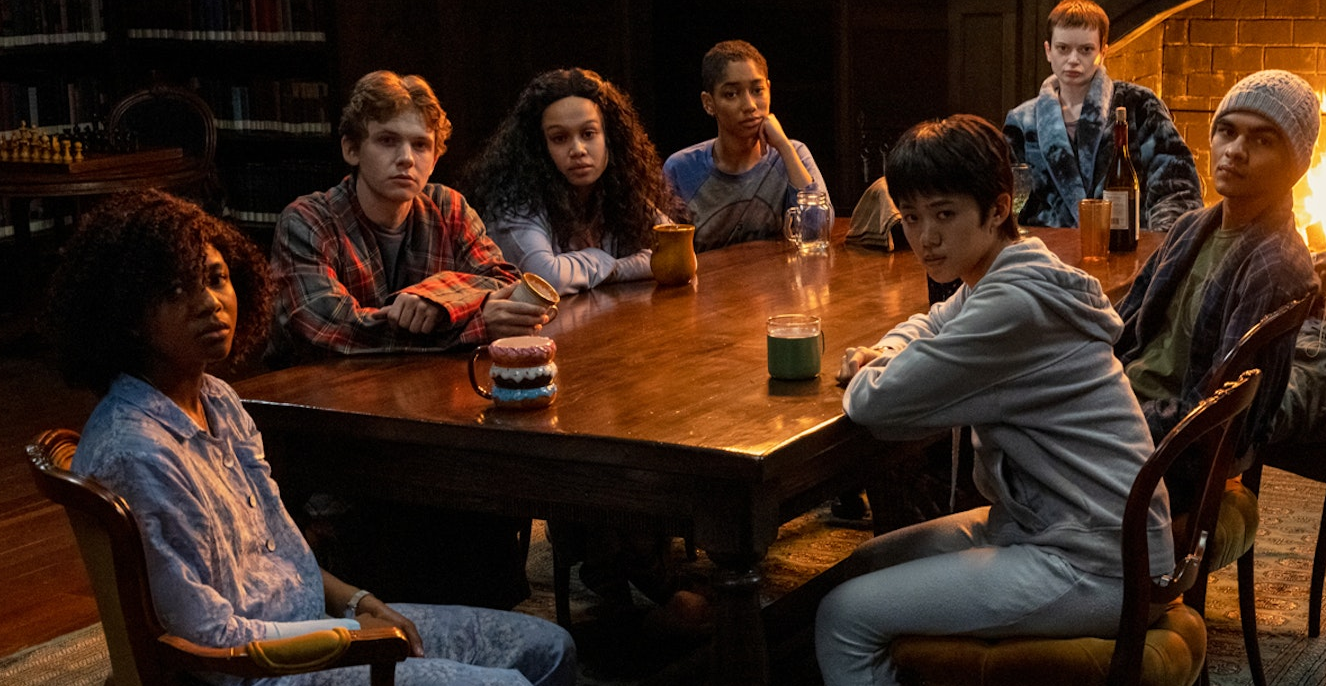





















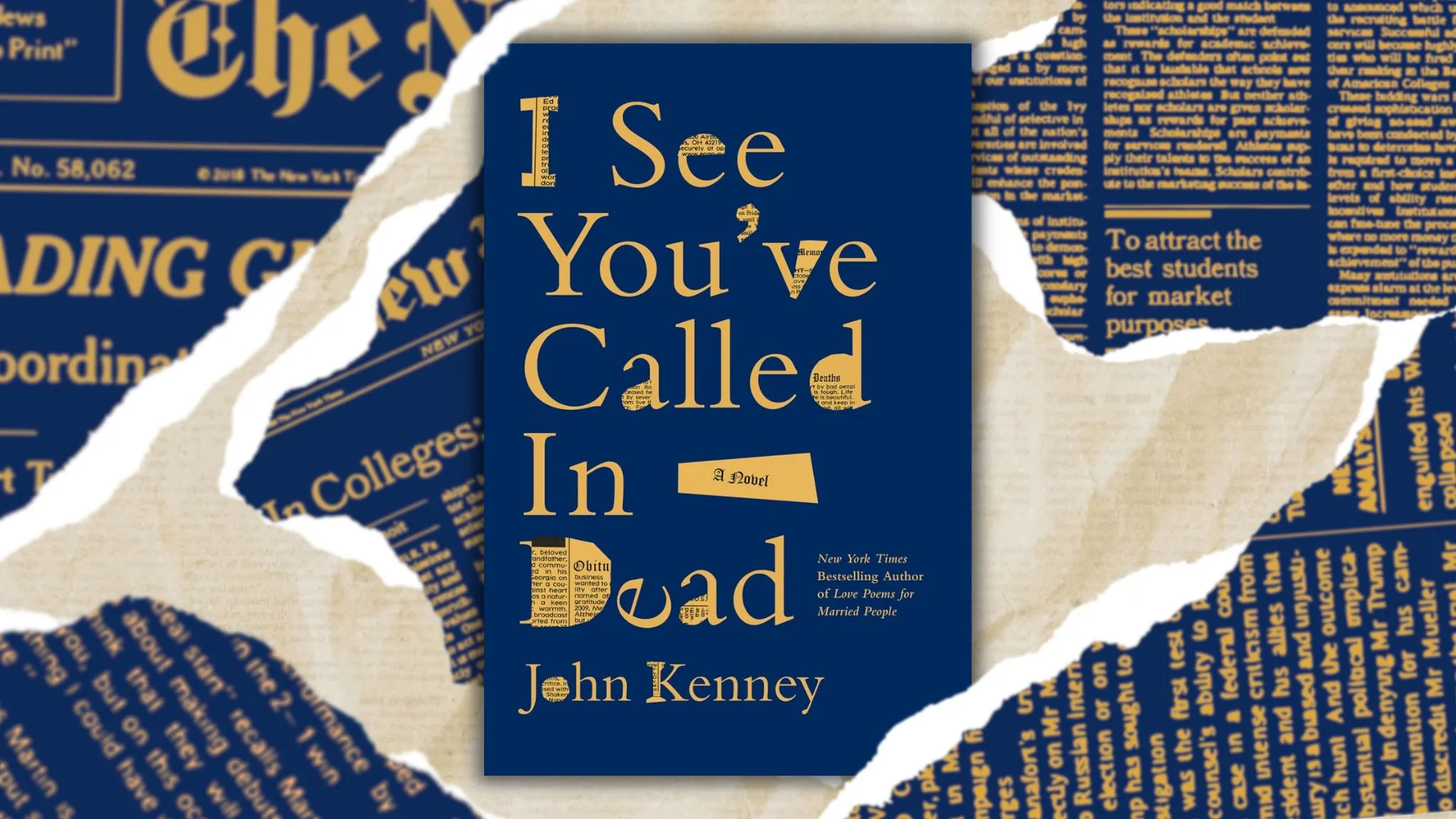



:quality(85):upscale()/2025/05/06/835/n/1922564/8e601b95681a5cf04194c6.14070357_.png)

:quality(85):upscale()/2025/05/05/100/n/1922564/33582ae7681964cb0d40c8.72464171_.png)



![ABYSMAL RITES – “Restoring The Primordial Order” [Heavy Sludge] ABYSMAL RITES – “Restoring The Primordial Order” [Heavy Sludge]](https://horrornews.net/wp-content/uploads/2025/04/WHD581-600x330.jpg)